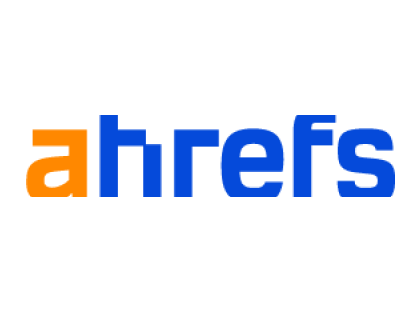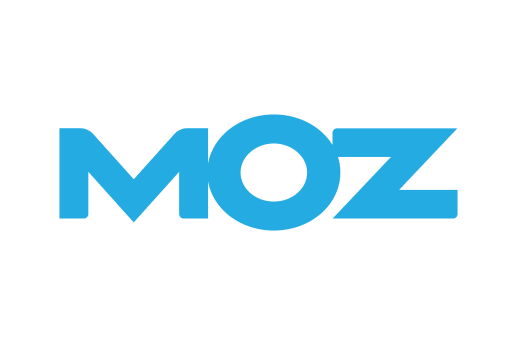The Powerful Sales Growth is
in Sense-Analytics
What is Analytics?
Analytics in digital marketing is the process of collecting and analyzing data to understand online behavior, track campaign performance, and make data-driven decisions to optimize marketing strategies. It’s like having a dashboard for your online business, showing you what’s working and what needs adjustment to reach your goals!

Why Analytics important for a
Brand's Performance Marketing?
Marketing analytics provides actionable insights from your campaigns, enabling data-driven decisions to optimize performance and enhance customer experience. By leveraging analytics, you can refine your marketing strategies and deliver more effective, customer-centric campaigns that drive better outcomes.
How to Analyse the Data for
Your Brand's Marketing?


SET CLEAR GOALS
Before diving into e-commerce data analysis, define your objectives. Establishing clear goals enables you to measure campaign success, focus your data analysis, and make informed decisions to drive desired outcomes. By setting goals, you’ll be able to determine whether your marketing efforts are on track and optimize your strategy for maximum impact.
You want to create SMART goals, which stand for:
-
Specific: SMART goals are specific, meaning they offer precision. Setting a goal like 'earn more leads' is not a SMART goal. A goal like 'Earn 10 new leads in two months' is specific.
-
Measurable:When you set goals, you need to measure them to see if you have achieved them. A goal like 'earn 20 sales in two months' can easily be measured.
-
Achievable:You do not want to set unrealistic goals for your business, as it just sets you up for failure. You also do not want to set goals that are too easy. Setting goals that are challenging but attainable will work best for your business.
-
Relevant:Your goals should always relate to your business and what you are trying to achieve. Whether you want to increase leads or drive revenue, your goals should reflect that.
-
Timely: When you set your goals, you need to set a time limit. Whether it is a month, a quarter, or a year, you need to put an end time limit on your goals to ensure you achieve them in the right amount of time.


KNOW WHAT DATA
YOU’RE ANALYZING
Define what you’re analyzing before diving into data analysis. Without a clear understanding of what you’re examining, you’ll be adrift in a vast ocean of data, struggling to uncover meaningful insights.
-
Search Engine Optimization (SEO) : Website traffic, conversions, and bounce rate
-
Pay-Per-Click (PPC) Advertising: Click-through rate (CTR), conversions, and return on ad spend (ROAS)
-
Email Marketing: Open and click rates, hard and soft bounce rates, and unsubscribe rates
-
Social Media Marketing: Organic impressions and website traffic generated from social media
-
Social Media Advertising: Cost per click (CPC), CTR, and conversions
-
Content Marketing: Lead generation, dwell time, and page views


SET BENCHMARKS
Establishing benchmarks is crucial when analyzing marketing analytics and evaluating campaign performance. Without a point of reference, data analysis is hindered. Benchmarks provide a foundation for comparison, enabling informed decisions. For instance, knowing a typical abandonment rate of 70% allows you to assess your current rate and identify areas for checkout process improvement. Benchmarks empower you to:
-
Set a starting point for data comparison
-
Draw meaningful conclusions from data
-
Gain actionable insights
-
Make data-driven decisions to drive business growth


USE A DATA ANALYSIS TOOL
When you perform data analysis, use a data analysis tool to assist you. Sifting through all your data manually is time-consuming. Moreover, if you run multiple types of marketing campaigns, you will have even more data to sift through.

WEBSITE ANALYTICS
Google Analytics is a powerful web analytics tool that provides insights into website traffic, user behavior, and marketing campaign performance. It enables businesses to track key performance metrics, such as conversions, bounce rate, and user demographics.



Website + SEO data analysis = To success More visibility, traffic, and higher search engine rankings.
These tools help improve website performance by:
-
Optimizing SEO for better search engine rankings
-
Analyzing keywords for targeted content
-
Examining competitors for strategic insights
HEAT MAPPING TOOLS
such as Hotjar, Microsoft Clarity, and Crazy Egg, assist businesses in visualizing user engagement and interaction on their websites. These tools provide valuable insights into how users navigate and interact with content, enabling businesses to optimize their website for improved user experience and conversions.
-

Hotjar: A comprehensive tool offering heatmap, feedback, and behavior analytics to understand user behavior.
-

Pay-Per-Click (PPC) Advertising:Click-through rate (CTR), conversions, and return on ad spend (ROAS)
-

Content Marketing:Lead generation, dwell time, and page views
CONVERSION TRACKING TOOLS
Conversion tracking tools enable businesses to monitor the performance of their marketing campaigns by tracking specific user actions, such as clicks, sign-ups, or purchases. This information helps marketers evaluate campaign success and identify areas for improvement.
-

Google Ads Conversion Tracking:A comprehensive tool offering heatmap, feedback, and behavior analytics to understand user behavior.
-

Facebook Pixel:Tracks conversions from Facebook and Instagram ad campaigns by implementing the pixel on websites.

ORGANIC TRAFFIC TOOL
Google Search Console is a powerful organic traffic tool that offers valuable insights into website performance, enabling data-driven SEO strategies. By monitoring search engine results pages (SERPs), Search Console provides metrics on website impressions, clicks, click-through rates (CTR), and average position, helping identify areas for improvement. Additionally, it detects technical issues, such as crawl errors and mobile usability problems, and offers suggestions for enhancement. Search Console also enables website owners to submit sitemaps, monitor keyword rankings, and analyze backlink data, making it an indispensable tool for optimizing website visibility, driving organic traffic, and boosting online presence.
AD OPTIMISATION TOOLS
such as Optmyzr, AdEspresso, and ClickCease, empower businesses to enhance the performance of their advertising campaigns by offering valuable insights and recommendations for optimising targeting, bids, and ad creatives. Explore these powerful ad.

ABoost your PPC campaigns with automated recommendations, advanced reporting, and time-saving features

Safeguard your ad campaigns against click fraud and improve your ROI with a robust ad fraud detection and prevention tool.

Streamline and optimise your Facebook, Instagram, and Google Ads campaigns with a comprehensive ad management platform.

